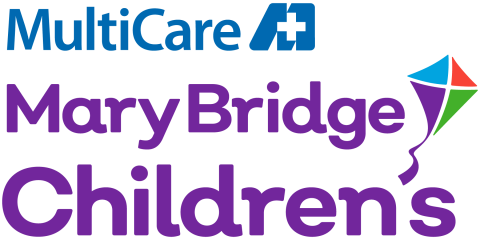
Mary Bridge Children’s Hospital is a participant in the 2023 cohort of the Preventing Youth Suicide Collaborative, a national initiative of leading children’s hospitals committed to advancing the implementation of the Zero Suicide Framework. This important work is made possible through the generous support of the Cardinal Health Foundation, in partnership with the Children’s Hospital Association.
Organization Profile
Mary Bridge Children’s Hospital, founded in 1955, is a trusted referral center for pediatric health in Washington’s Puget Sound region. Each year, Mary Bridge serves approximately 162,000 unique patients, 60% of whom rely on Medicaid. The hospital provides comprehensive services including pediatric primary care, specialty care, a pediatric trauma center, and community outreach programs. In 2026, Mary Bridge will relocate to a new 96-bed stand-alone facility, which will include reduced-risk ED rooms for behavioral health crises, a pediatric ICU, and expanded specialty care.
Implementation of Zero Suicide
Mary Bridge launched its Zero Suicide initiative with a workforce survey to establish a baseline and identify key needs. Survey responses highlighted gaps in resources, de-escalation strategies, and staff preparedness in caring for patients at risk of suicide. This feedback guided the development of a Zero Suicide Toolkit training, a four-part asynchronous training series required for all ED staff. The training covered:
- Suicide Prevention: An overview of pediatric suicide, including risk and protective factors, stigma, and how to have conversations with young patients.
- Behavioral Health Landscape: Education on the continuum of behavioral health services, access points across the county and state, and matching levels of care to patient risk.
- Suicide Care Pathway at Mary Bridge: A detailed review of Mary Bridge’s pathway for caring for patients with suicide risk, using Zero Suicide modules to align policies and practices with national best practices.
- Moral Injury and Repair for Staff: Training led by a community expert, focused on supporting healthcare workers exposed to the emotional toll of suicide care.
Mary Bridge also invested in additional training initiatives:
- A workplace safety staff member completed SafetyCare training, informing the development of trauma-informed de-escalation training tailored for pediatric and neurodivergent patients.
- Staff participated in EDC’s Safety Planning training, which is being adapted for Mary Bridge’s social work department beginning in September 2025.
Beyond training, Mary Bridge developed a Suicide Care Pathway that provides clear, step-by-step guidance for staff in supporting at-risk patients (document available separately). The pathway integrates screening, safety planning, and referrals into a standardized process across the hospital.
Monthly meetings between the Zero Suicide team and ED leaders ensure ongoing alignment, and the initiative has expanded into broader system-level efforts, engaging the MultiCare Health System (of which Mary Bridge is the only pediatric hospital) to standardize suicide prevention practices across facilities.
Key Outcomes
The Zero Suicide Toolkit had a measurable impact on staff confidence. Post-training surveys found that 54% of ED staff reported increased confidence in providing care to patients at risk of suicide, and 81% of staff completed the training.
Additional outcomes include:
- Development of a clear Suicide Care Pathway across all specialties
- Creation of Epic reports to track suicide-specific metrics such as screening adherence, deaths, and attempts — a first for the facility
- Expansion of trauma-informed training and de-escalation skills across Mary Bridge and the larger MultiCare system
- Introduction of monthly “Mock Code Gray” drills to practice de-escalation skills.
“Code Gray” is the system-wide alert for combative or dangerous persons, requiring all available staff to respond. Led by the nursing Zero Suicide team member, these in-service drills allow staff from all disciplines to practice verbal de-escalation and, if needed, procedures for physical or chemical restraint alongside security staff. The drills have been instrumental in building confidence and skills across the workforce.
One notable success story involved a high-risk patient identified through ambulatory screening who was seamlessly transitioned to the ED for treatment, prompting ambulatory clinics to pursue standardized screening and care transition processes.
Future Steps
Mary Bridge is expanding standardized screening into ambulatory settings to ensure patients at risk are identified beyond the ED. Beginning in 2026, the hospital will pilot next-day appointment scheduling for discharged patients, coordinating with community-based behavioral health programs to provide timely follow-up, review safety plans, and reduce ED readmissions.
The hospital also plans to expand its trauma-informed de-escalation training pilot from the ED to the broader MultiCare Health System, enhancing workplace safety across facilities.
By combining staff-driven training development, clear care pathways, new safety metrics, and innovative de-escalation drills, Mary Bridge Children’s Hospital has strengthened its capacity to care for patients at risk of suicide. These efforts demonstrate a strong commitment to Zero Suicide principles and to improving safety for children, families, and staff throughout the Puget Sound region.